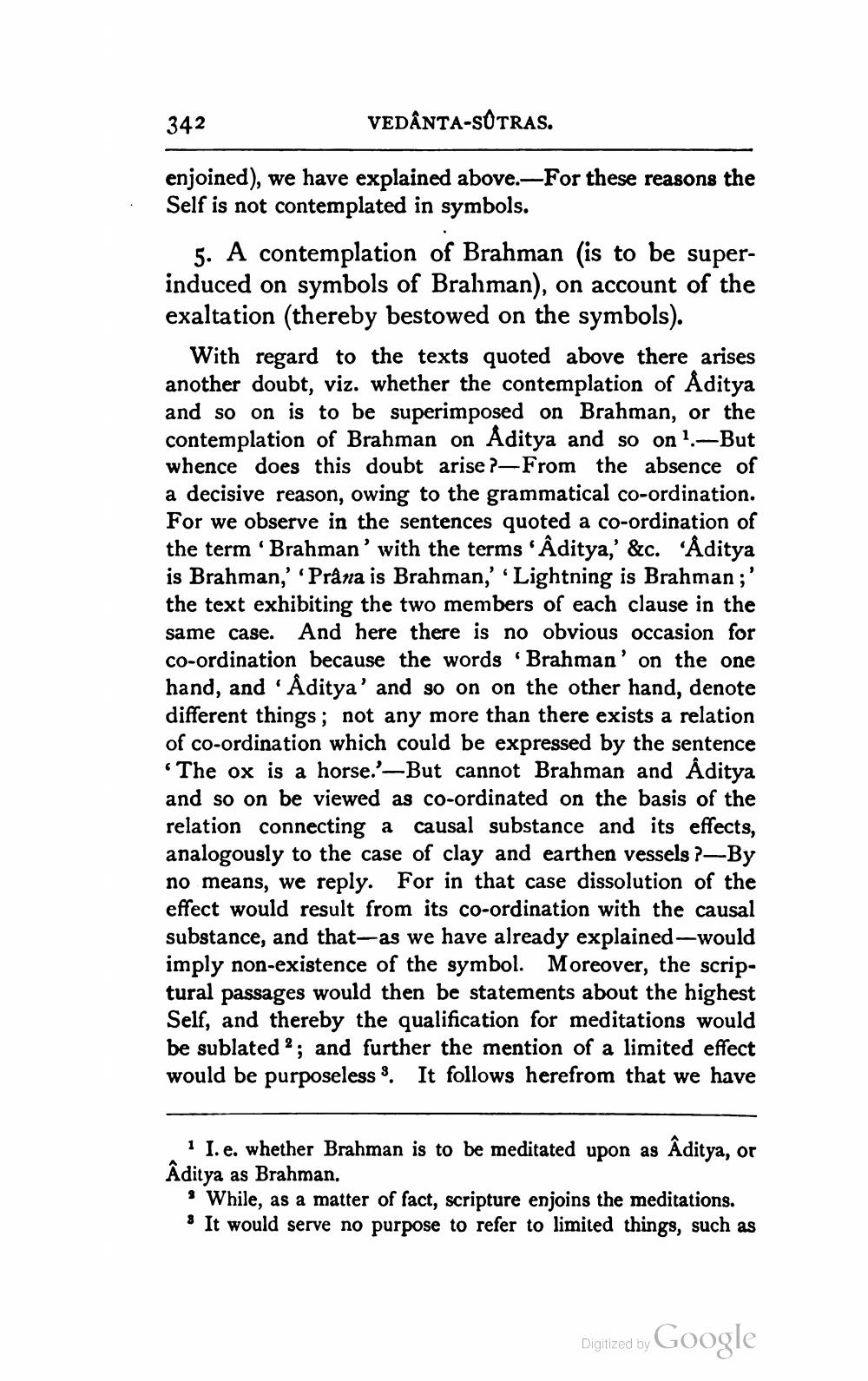________________
342
VEDÂNTA-SOTRAS.
enjoined), we have explained above. For these reasons the Self is not contemplated in symbols.
5. A contemplation of Brahman (is to be superinduced on symbols of Brahman), on account of the exaltation (thereby bestowed on the symbols).
With regard to the texts quoted above there arises another doubt, viz. whether the contemplation of Aditya and so on is to be superimposed on Brahman, or the contemplation of Brahman on Aditya and so on.-But whence does this doubt arise ?— From the absence of a decisive reason, owing to the grammatical co-ordination. For we observe in the sentences quoted a co-ordination of the term 'Brahman' with the terms 'Aditya,' &c. 'Aditya is Brahman,''Prana is Brahman,''Lightning is Brahman;' the text exhibiting the two members of each clause in the same case. And here there is no obvious occasion for co-ordination because the words 'Brahman' on the one hand, and 'Aditya' and so on on the other hand, denote different things; not any more than there exists a relation of co-ordination which could be expressed by the sentence
The ox is a horse.'-But cannot Brahman and Aditya and so on be viewed as co-ordinated on the basis of the relation connecting a causal substance and its effects, analogously to the case of clay and earthen vessels – By no means, we reply. For in that case dissolution of the effect would result from its co-ordination with the causal substance, and that-as we have already explained-would imply non-existence of the symbol. Moreover, the scriptural passages would then be statements about the highest Self, and thereby the qualification for meditations would be sublated 2: and further the mention of a limited effect would be purposeless 3. It follows herefrom that we have
1 I.e. whether Brahman is to be meditated upon as Aditya, or Aditya as Brahman.
. While, as a matter of fact, scripture enjoins the meditations. * It would serve no purpose to refer to limited things, such as
Digitized by
Digitized by Google




